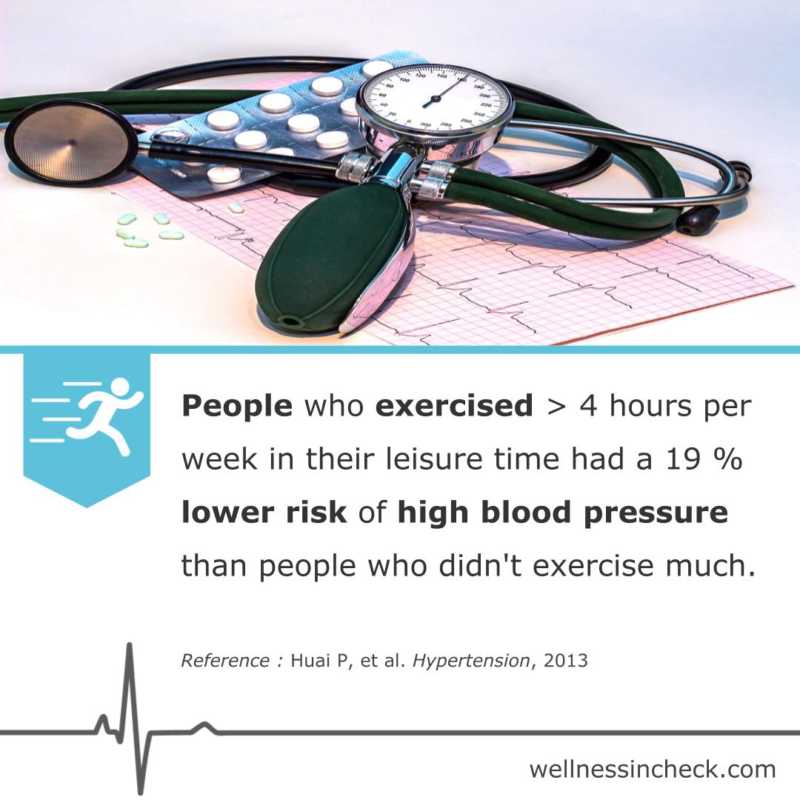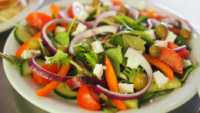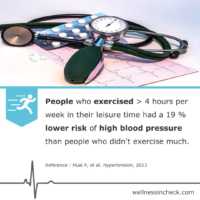7 Effective Ways to Lower Your Blood Pressure Without Medications
There is a good reason why hypertension or high blood pressure is a “silent killer”. That is mainly because these cardiovascular complications often display no symptoms – however, they can lead to stroke and debilitating heart diseases. Moreover, these medical ailments have become one of the most rampant causes of death in the US.

Did you know that around one in three people in the US have high blood pressure?
But you shouldn’t worry too much because high blood pressure or hypertension can be managed or minimized if you make some positive lifestyle changes. Switching to a healthy diet and engaging in regular exercises can significantly reduce your susceptibility to developing these problems – plus, the good news is you won’t need any potent medications.
In light of this, mentioned below are seven of the best ways you can actively reduce your blood pressure levels:
- Become Active and Exercise More
As per a research study focused on inactive seniors, performing light exercises, such as aerobics helped significantly reduce their blood pressure by approximately 3.9% (systolic) and 4.5% (diastolic). You will happy to know that these results are on par with what you will get if you start taking prescription drugs.
Performing regular exercises stimulates the heart and stabilizes your breathing patterns, and gradually your heart become strong and stronger, pumping blood with more efficiency but less effort. What this does is reduce arterial pressure, which in turns minimizes your blood pressure.
But how much exercise must I do every day? That is a good question, and as per a research carried out by the ACC (American College of Cardiology) as well as the AHA (American Heart Association), medical professionals advise doing light to intense physical exercises, engaging in forty minute sessions at least four times every week.
If it is difficult to take out forty minutes – you can divide that time into 10 and 15 minute sessions spreading the regimen throughout the day. You can run for 10 minutes in the morning and do some light weight exercises at night or however you please.
- Try to Lose Some Kilos if You Are Overweight
If you’re tipping the scales, realize that shedding even five to ten pounds can help drastically reduce your blood pressure. Moreover, you will also become less susceptible to developing symptoms associated with numerous other diseases such as diabetes.
In a cluster of studies posted in 2016, it was discovered that losing weight by sticking to healthy diets help considerably lower blood pressure by approximately 4.5 mm Hg (systolic) and 3.2 mm Hg (diastolic).
- Say No to Processed Food
You may not be conscious of it but whenever you indulge in fast food or processed food items, you are consuming more salt. So, it doesn’t matter if you don’t top your food off with some table salt, you are already getting way too much.
Some of the most common and in-demand processed food items that contain a lot of salt include pizza, burgers, deli meat, chips, canned soup, etc.
Do not be fooled by what the label says on the food package – sure it does say “Low-Fat”, but in reality these food items are laden with high quantities of sugar and salt. And companies do that so that they can replace the fat content.
So what can you do? Well, either cut down on processed foods completely or if you can’t control those weekly cravings, it is better to check the label for salt content. As per the regulation of the U.S. Food and Drug Administration, a 5% listing of sodium is low while food types that have a 20% sodium listing are significantly high.
- Perform Mindfulness Exercises Such as Yoga
Exercises that engage the mind and body as a whole – also referred to as transcendental meditation – have been practiced for centuries. Plus, there have been a lot of research on how these exercises considerably reduce stress levels. As per a research in 2012 carried out by the University of Massachusetts, the study had more than 19,000 people practicing yoga to reduce mental and physical stress.
Yoga is the most popular form of transcendental exercise; it involves controlling your breathing patterns and posture through varying meditation techniques that can help quickly flush out negative energy and lower stress.
A 2013 research on yoga revealed that yoga was able to relieve blood pressure by 4.17 mm Hg systolic and 3.62 mm Hg diastolic compared to people who did not perform yoga.
- Sleep Well and On Time
Getting a good night’s sleep significantly helps reduce blood pressure, but lack of sleep increases it. Everybody that doesn’t sleep on time, have erratic sleep cycles or are sleep deprived, especially middle-aged folks, are susceptible to high blood pressure.
People with busy schedules don’t find it easy to get a good night’s sleep. However, there are plenty of ways you can ensure you sleep like a baby, aromatherapy, taking a hot bath, getting some massage or exercising a couple of hours before sleep are all methods that can help you fall asleep.
The NSHS (National Sleep Heart Health) study revealed that sleeping for more than nine hours and below seven hours can lead to hypertension. In addition, sleeping less than five hours every day increased that susceptibility of high blood pressure in the long run.
- Control Your Alcohol Intake
It doesn’t matter how healthy you are, if you drink like it is the end of the world then you will develop symptoms associated with heart disease. It is vital that you drink in moderation. As per a study, it was determined that for every ten grams of alcohol drunk, your blood pressure increases by one mm Hg.
- Quit Smoking
Quitting smoking isn’t just great for your heart; it is also good for your lungs. Smoking cigarettes increases your blood pressure – but that is temporary. However, in the long run, the chemicals and ingredients in the tobacco you smoke will slowly harden your arteries and narrow them, not to mention it will cause inflammation. All of these symptoms will lead to drastically increased blood pressure and cardiac disease.
An evidence-based article written and reviewed by our experts at Wellnessincheck.




